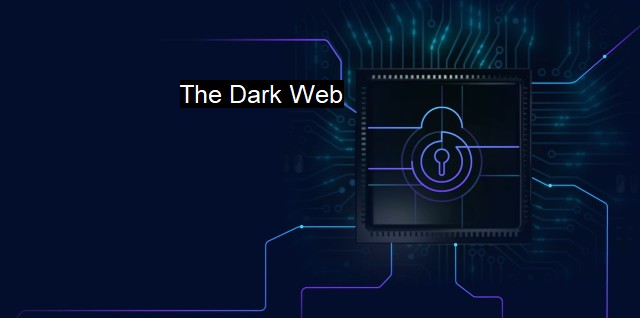What is The Dark Web?
The Hidden Dangers of the Dark Web: Cybercrime, Anonymity, and Antivirus Protection
The Dark Web is often portrayed as an unsupervised and clandestine corner of the internet rife with illegal activities - and unfortunately, such portrayals aren't far off. Cloaked in notoriety, it has become a hub for illicit transactions, invasion of privacy, data breaches, and various cybercrimes. As much as it's shrouded in mystery, it bears great significance in the fields of cybersecurity and antivirus.The Dark Web refers to the encrypted section of the internet not indexed by traditional search engines. It is an integral part of the Deep Web - the broad segment of the internet that is not accessible through standard browsers. This is the very feature of the Dark Web that lures the wrong element; by remaining protected by layers of encryption, users can maintain anonymity and keep their operations in the shadows.
The creation of the Dark Web was well-intentioned. The United States military researchers developed it to send encrypted messages — a methodology now known as Onion Routing, an approach that wraps and encrypts data with numerous layers just like the layers of an onion. It was intended for the secure communication of intelligence agencies and similar organizations and was open to the public to prevent traffic analysis.
The Dark Web is notorious as a vibrant marketplace for all sorts of illicit goods and services - drugs, illegal weapons, counterfeit currencies, fake passports, and even hacking tools. More concerning is the fact it is a breeding ground for cybercriminals. It is a space where they communicate, sell, and buy sensitive data and find collaborators for their malicious schemes.
For instance, Personal Information such as credit card details, bank account numbers, Social Security numbers, medical records, and other sensitive personal data that cyber thieves purloin, often ends up for sale on Dark Web markets. Corporate data also makes its way into these treacherous corners of the web, including intellectual property, proprietary business data, customer databases, and even exploit code for identified but unrevealed security vulnerabilities.
The Dark Web harbors countless forums and 'how-to' guides that offer wisdom on executing all sorts of cybercrimes, providing tutorial-like guidance on how to launch attacks or infiltrate systems.
In light of the above, the Dark Web raises significant concerns for cybersecurity and more pointedly, calls for robust antivirus systems. Advanced antivirus systems remain one of the first and most-important lines of defense against the onslaught of various types of malware readily available on the Dark Web.
These operations can pose notable threats not just to individual devices, but to entire networks of computers in scenarios such as ransomware attacks and data breaches, infecting them with virus payloads, Trojan horses, or spyware that can record sensitive information and send it back to malevolent actors. As such, these antivirus systems use heuristic methods and behavioral monitoring to detect complex, advanced threats, leveraging Artificial Intelligence and Machine Learning to protect against zero-day attacks and sophisticated threats.
Internet hygiene and precautions - such as regularly updating software and avoiding non-secure sites - should always be part of everyone's online routine. with the Dark Web featuring prominently in the conduct of cyber threats, a powerful antivirus becomes more critical than ever for companies and individuals alike. Proactive defense mechanisms, smart firewalls, real-time security checks, and the constant updating of virus definitions now form key cybersecurity practices due to the Dark Web and its many potential dangers.
While the Dark Web is far from the public eye, it remains a hotbed for threats to cybersecurity. By understanding its various facets and concerns, robust security measures, including advanced antivirus software, can be developed to combat the risks arising from this shadowy portion of the internet. The continued evolution of cyber threats underscores the need for continuous development, reassessment, and improvement in cybersecurity measures and antivirus systems.

The Dark Web FAQs
What is the dark web?
The dark web is a part of the internet that is not indexed by search engines and requires specific software or configurations to access. It is often used for illegal activities such as selling drugs, stolen data, and other illicit goods.Is the dark web only used for illegal activities?
No, the dark web can be used for legitimate purposes such as anonymous communication, whistleblowing, and accessing information in countries with strict censorship laws. However, it is important to be cautious and aware of the potential dangers when accessing the dark web.Can antivirus software protect me from the dangers of the dark web?
While antivirus software can provide some protection, it cannot completely protect you from the risks associated with the dark web. It is recommended to use a VPN, a reputable antivirus software, and taking precautions such as not sharing personal information or downloading suspicious files when accessing the dark web.Is it illegal to access the dark web?
No, accessing the dark web itself is not illegal. However, engaging in illegal activities while using the dark web, such as purchasing or selling drugs, weapons, or stolen data, is illegal and can result in severe legal consequences. It is important to use caution and discretion when accessing the dark web.| | A | | | B | | | C | | | D | | | E | | | F | | | G | | | H | | | I | | | J | | | K | | | L | | | M | |
| | N | | | O | | | P | | | Q | | | R | | | S | | | T | | | U | | | V | | | W | | | X | | | Y | | | Z | |
| | 1 | | | 2 | | | 3 | | | 4 | | | 7 | | | 8 | | |||||||